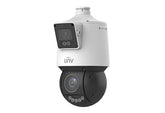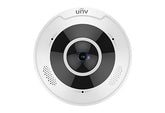The Installer’s Guide to NDAA Compliance
What is NDAA Compliance?
In the security industry, NDAA compliance refers to adhering to Section 889 of the John S. McCain National Defense Authorization Act (NDAA) for Fiscal Year 2019. This U.S. law, passed in August 2018, prohibits federal agencies, and those receiving federal funds or contracts, from buying or using certain telecommunication and video surveillance equipment made by specific Chinese manufacturers. Being "NDAA compliant" means avoiding products from those banned companies or any equipment containing their components.
The NDAA explicitly names these companies of concern:
- Huawei Technologies (telecom equipment)
- ZTE Corporation (telecom equipment)
- Hytera Communications (radio systems)
- Hangzhou Hikvision (video surveillance)
- Dahua Technology (video surveillance)
Equipment made by or containing critical parts from these entities is prohibited in federal procurement. For example, a security camera using a Huawei chipset, even under a different brand, is still banned.
Why NDAA Compliance Matters for Installers
NDAA compliance can determine whether you qualify for government projects and if your installations are future-proof. Here’s why it matters:
- Legal Requirements: Government projects (federal, school, municipal) demand NDAA-compliant gear.
- Cybersecurity: NDAA-compliant devices avoid flagged backdoors or foreign vulnerabilities.
- Reputation & Future-Proofing: Using compliant gear builds credibility and avoids costly replacements.
Which Products Are Restricted?
- Telecom gear from Huawei and ZTE (routers, switches, 4G modules)
- Video surveillance from Dahua and Hikvision (including OEM brands)
- Two-way radios from Hytera
Even components (chipsets, firmware) from these brands are banned. Rebranded gear with these origins is also non-compliant.
Uniview and NDAA Compliance
Uniview (UNV) is not named in NDAA Section 889 and has committed to full compliance. The company:
- Publishes an official NDAA compliance statement: Uniview NDAA Notice
- Maintains an updated list of NDAA-compliant models (cameras, NVRs, switches, etc.)
- Avoids restricted components like Huawei chipsets
“We are aware of the NDAA and abide by its stipulations… making sure the products are compliant with project requirements.” – Uniview
Tips to Ensure Compliance
- Know the banned brands and OEM aliases
- Buy only from trusted, compliant manufacturers
- Verify product lineage (no Hik/Dahua rebrands)
- Audit existing installs for banned gear
- Keep documentation and educate clients
- Stay informed with updated lists and regulations
Conclusion
NDAA compliance is essential for legal, secure, and future-ready surveillance systems. Uniview stands out as a trusted solution, offering a wide range of feature-rich, NDAA-compliant products. By understanding Section 889 and making informed choices, installers position themselves for success in both public and private sector work.






